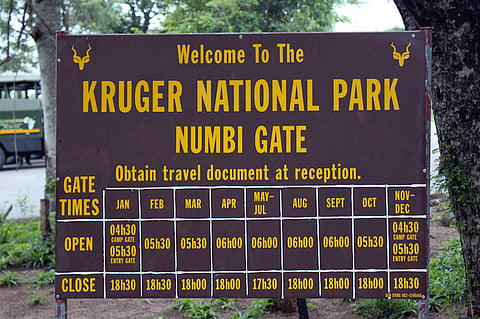Private property rights under attack again, ANC accelerates farm transfers
When boiled down to the core, the difference between capitalism and communism is private property rights. In communism they do not exist – all assets belong to the State. Capitalism, on the other hand, is rooted in the sanctity of private property. The traditional South African approach uncomfortably straddles both stools with land owned by the community but all decisions about it vesting with a hereditary leader. In modern society, this approach has been ruinous, a fact starkly obvious in the poor productivity and soil erosion where the ancient regime is applied. Overlay the complexities of food security and South African political history, and it's little wonder the ANC Government has struggled to discover a solution to the emotive issue of agricultural land. Its latest plan, covered in some detail below by Reuters, is another high risk attempt to engineer a solution. Achieving the efficiencies demanded in a competitive world requires scale and those managing and investing in factors of production require certainty of tenure. The ANC's latest plan for agriculture, well-intentioned as ever, fulfils neither of these critical requirements. – Alec Hogg
By Ed Stoddard
KRUGER NATIONAL PARK, South Africa, May 21 (Reuters) – South Africa's government is planning to impose limits on farm sizes to free up parcels of land to hand over to blacks, a minister said on Saturday, giving an insight into the workings of a divisive redistribution scheme.
"If you are a small-scale farm and have 1,400 HA, we will buy the 400, and leave you with your 1,000. We will buy the extra and redistribute it to black people," the minister said.
South Africa's ruling African National Congress (ANC), facing local elections in August, has promised to speed up plans to redistribute land which remains predominantly in white hands two decades after the end of apartheid.
Some economists and farming groups have said the proposals could hit investment and production at a time when South Africa is emerging from a major drought – pointing to the economic damage linked to farm seizures in neighbouring Zimbabwe.
They have also complained about a lack of clarity on how it will all work.
Setting out the farm size limits and specifically linking them to the redistribution scheme may further alarm owners, particularly of smaller plots.
But the government says the redistribution process needs to be accelerated, to rectify past wrongs and provide opportunities to the previously excluded, and has repeatedly said it will stick to the law and not follow Zimbabwe's example.
Kruger Compensation
"In South Africa you have a concentration of land ownership in the hands of a few people. That is something we have to correct," Nkwinti said before a ceremony in Kruger National Park where President Jacob Zuma handed over 84 million rand ($5.4 million) in compensation to black communities evicted decades ago.
Experts estimate about 8 million hectares of farmland have been transferred to black owners since the end of apartheid, 8 to 10 percent of the land in white hands in 1994 and only a third of the ANC's long-running 30 percent target.
The party has said it will speed up the process with a bill going through parliament allowing the state to expropriate land without the owner's consent.
Several black communities had land claims on the 2-million hectare Kruger Park because they were removed after the Native Land Act of 1913, which consigned South Africa's black majority to 13 percent of the country's territory.
But the government wants to keep the Kruger, a major tourist draw and home to many animal species, intact, so its policy is to compensate those with claims on it through cash instead of allowing them to resettle in the park's boundaries.
Perry Sambo, a 63-year-old school teacher who is one of the claimants being paid, said his parents had been removed from Kruger before he was born.
"It was very difficult. Transport was very scarce and they did not get any assistance in what they wanted to carry. And some of their belongings they had to leave because they could not carry everything. They lost also cattle on the way that were eaten by lions," he told Reuters.

